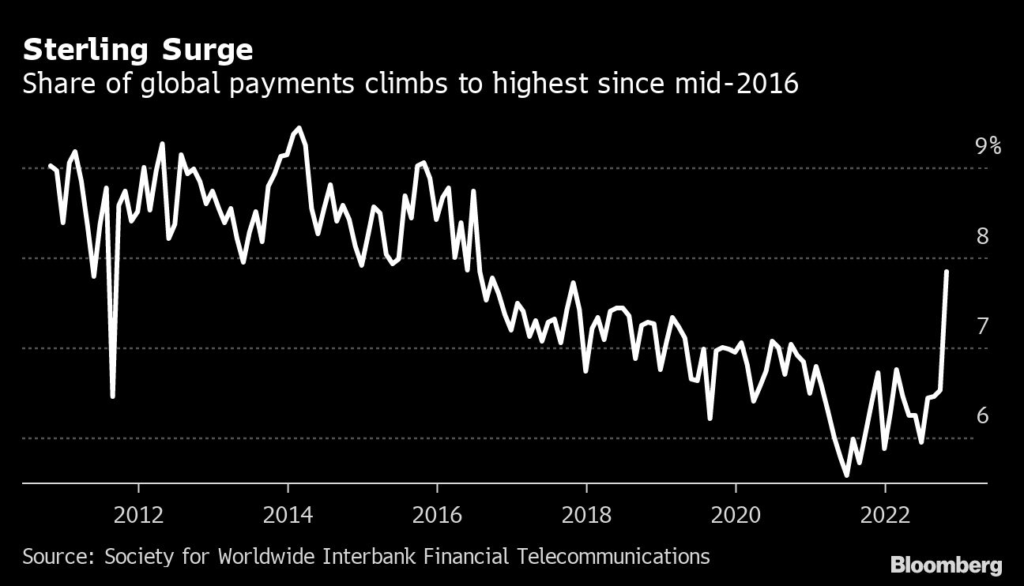Bank customers are the most enthusiastic about using the British pound for global payments since mid-2016, around the same time the UK voted to quit the European Union.
(Bloomberg) — Bank customers are the most enthusiastic about using the British pound for global payments since mid-2016, around the same time the UK voted to quit the European Union.
The proportion of global payments made using sterling has surged to 7.845% of the total in October, up almost 2 percentage points since June, according to data from the Society for Worldwide Interbank Financial Telecommunications, known as SWIFT.
That’s nearly on par with the mark seen in July 2016, a month after the so-called Brexit vote took place. It’s a notable gain from this June, when use slid below 6%.
The pound is the third most popular payments currency, behind the US dollar and the euro. The amount of transactions involving dollars slipped slightly to 42.1%, while euro usage dropped to 34.4% of the whole. The Japanese yen ranked fourth, making up 2.95% of transactions, followed by the Chinese yuan, the Canadian dollar and the Australian dollar.
The jump in pound usage comes even as the currency’s value came under pressure this year. It remains one of 2022’s worst-performing major developed currencies in terms of value, even after rebounding from the multi-decade lows it reached in late September when then-Prime Minister Liz Truss’s fiscal plans sent investors fleeing.
Despite the bounce, the pound has weakened almost 12% against the dollar this year. The yen, though, has done even worse, with its value down more than 17% against the greenback in 2022.
The economic outlook for Britain remains in flux, with the government due to unveil its latest budgetary plans Thursday and the years-long fallout from Brexit still unfolding. At the same time, the continent as a whole is reeling from challenges caused by Russia’s invasion of Ukraine and its impact on European energy supplies.
Meanwhile, SWIFT data showed the Chinese yuan’s share of transactions fell to 2.13% in October, the lowest in a year, as the country’s economy remains under pressure from its Covid Zero policy and concerns about the property sector.
SWIFT is a cooperative organization that provides secure financial messaging services to aid the execution of financial transactions and payments between banks worldwide.
More stories like this are available on bloomberg.com
©2022 Bloomberg L.P.











